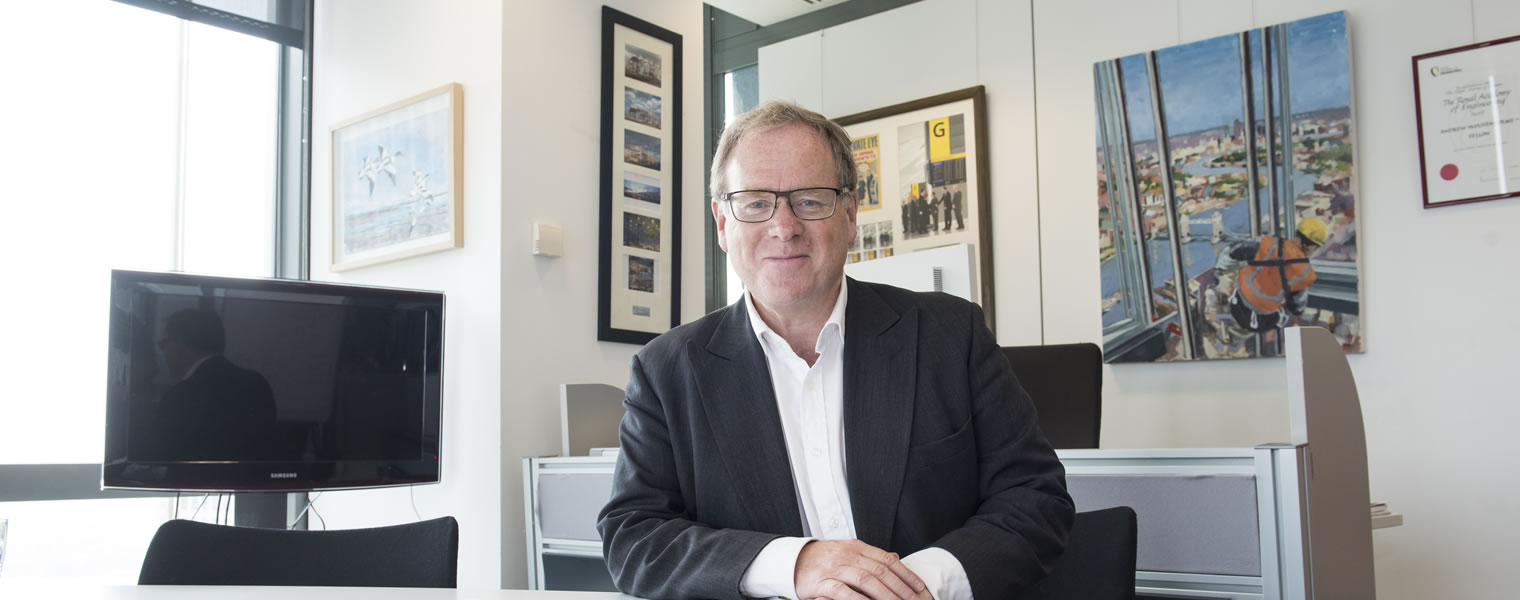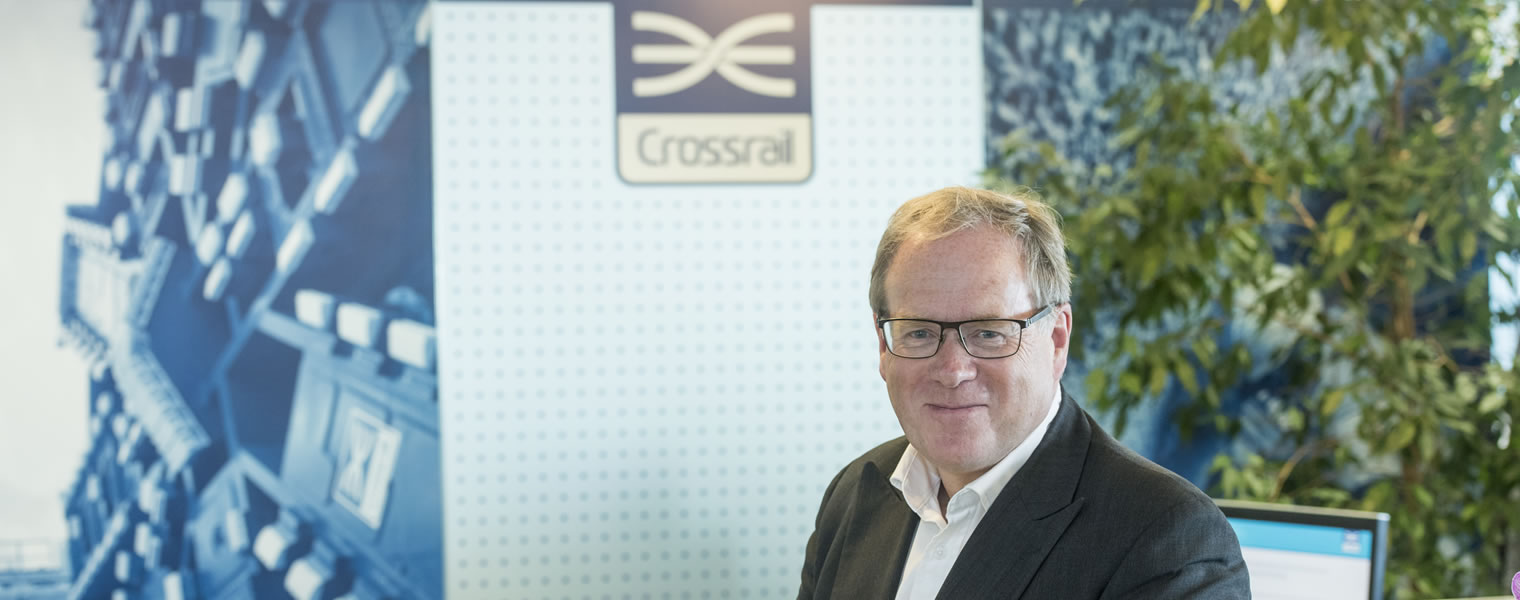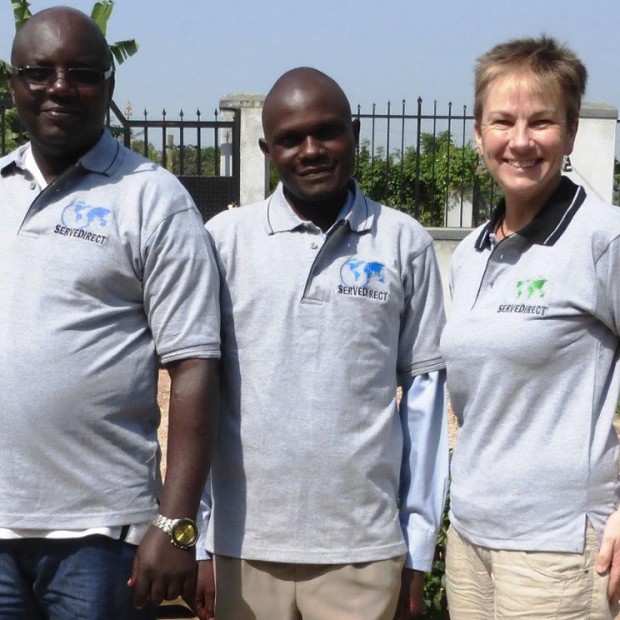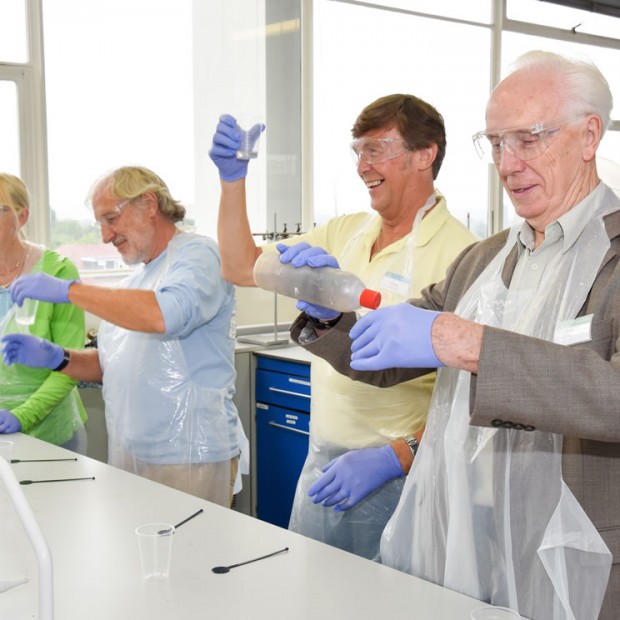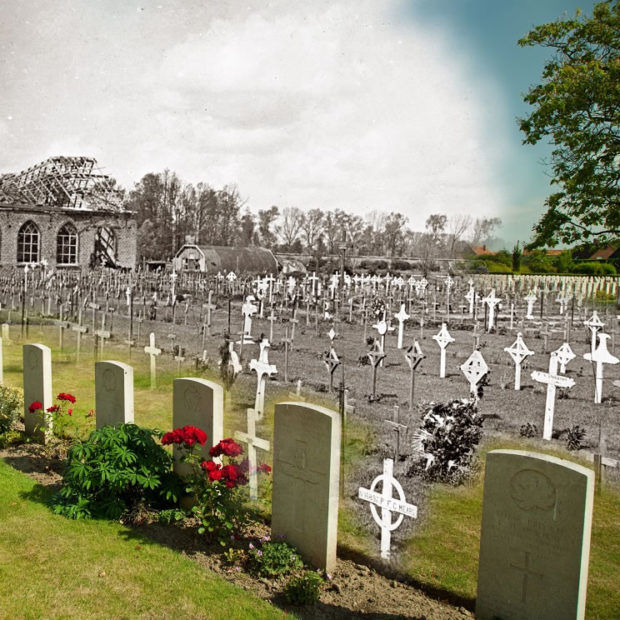Hartley News Online Your alumni and supporter magazine
Andrew Wolstenholme (Civil Engineering, 1981) is CEO of Crossrail, the company responsible for building a new high frequency, high capacity railway service through Central London, running from Heathrow and Reading in the West to Abbey Wood and Shenfield in the East.
Andrew talks to Southampton Connects about his varied career, from serving in the army to leading Europe’s biggest infrastructure project.
Why did you choose to study civil engineering at Southampton?
Southampton majored in maritime, aeronautical and civil engineering. My grandfather was a civil engineer and my mum, dad and brother were all architects, but for me engineering was a better match.
I was sponsored by the Army at Southampton, as I joined in my gap year on a short service limited commission. Southampton was regarded as a great university academically and it was also convenient for me as I grew up in the south.
How did your studies and time in Southampton help to shape your future?
The recognition of a first-class honours degree has given me flexibility in what I could do. It’s given me the opportunity to meet great people, work hard and get a lot out of life beyond academic study. A great degree from a great university can open doors for the future.
You’ve worked in a number of different countries, across many engineering projects – what was it like working in Chicago and South East Asia?
For me, going overseas is always hugely exciting, it’s fantastic to learn about new cultures and find out how things are done differently in another part of the world.
Chicago is a vibrant city with great engineers and great architecture, and going there allowed me to apply the knowledge of my degree. The energy of South-East Asia in the mid-1990s was fantastic to experience as a young professional engineer. When I was there and meeting clients, I learnt that engineering is not just a set of theoretical processes, it’s taking someone’s vision and delivering it into something that is going to benefit society.
Can you tell us about the work you are doing as Chief Executive of Crossrail? How is the London–South East railway developing?
At the moment, Crossrail is 85 per cent complete, and is due to be delivered on time and on budget. It will absolutely transform London, providing 10 per cent extra rail capacity for London; it will change the way people transition through this great capital city.
As you are promoted in this sector, the bandwidth of being a chief executive is huge – from delivering 200 million passenger journeys a year to understanding the complexity of delivering the technology and railway systems which make up Crossrail. I have to deal with a lot of stakeholders, from politicians to people in the community as well as the huge range of people working to deliver Crossrail.
What do you enjoy about the job, and what motivates you?
Crossrail is a project which I think really matters – it matters long-term to London and it matters to the people that will use it. Delivering complex technology with long-term benefits to society, and doing it with interesting people, is what I enjoy.
Out of all the projects you have worked on, what are you most proud of?
I think you learn something new at every point of your career. In the Army, I learnt a lot about myself and other people from working in difficult environments. In Chicago and Asia, I began to take on huge responsibilities as a young professional. I was very proud to work on Heathrow Terminal 5, it really led the industry into a new way of working. I’m hugely proud of what we’ve achieved so far with Crossrail – delivering 42km of tunnel under London and creating 55,000 jobs across the UK.
Ahead of the University’s Public Lecture on 19 July on Sustainable Cities, can you tell us how Crossrail ensures sustainability within its rail infrastructure?
Crossrail has considered very carefully how to build and deliver things sustainably, and throughout this project we have constantly looked for ways to deliver great examples of social, economic and environmental sustainability.
For instance, we have tried to improve the energy efficiency and carbon footprint of Crossrail. Our trains are very light compared to others in the same class, and have regenerative breaking and advanced management systems to reduce the total energy used. Around 80% of the 6.5 million cubic metres of material excavated from the tunnels was used to build a bird sanctuary on the Essex coast.
It isn’t just about environmental sustainability – we achieve social sustainability through our skills and training programme, which supports around 700 apprentices. On economic sustainability, 60% of work has been awarded to SMEs (small and medium-sized enterprises) and around 90% to UK-based companies.
We believe Crossrail will leave an important legacy which will inspire fellow future engineers to join major infrastructure programmes in the future, and give the sector the ability to deliver not just Crossrail, but the many important projects that follow. Let’s make engineering and Britain great once again.
How did you feel about being included in the Debrett’s Most Influential 500 list?
I was surprised, it was a real honour. Sometimes engineering isn’t reflected as I feel it should be; perhaps not as highly as it is in Europe. So I was proud to represent what we have achieved at Crossrail and meet other people who are operating at the top of their career.
Why have you chosen to support the University’s Cancer Immunology Campaign?
Southampton, as well as being recognised for engineering, is also a medical teaching hospital. I liked the approach of the immunology programme; solving one of world’s biggest problems in a very unique way by asking your own body to help.
Southampton is a centre of global excellence, led by remarkable scientists and medics, and I wanted to support the institution that gave me my start in life. I saw real examples of how this programme had saved lives; these opportunities were attracting huge attention in the medical world, and I’m proud that Southampton is at the heart of that.
What advice would you give to anyone thinking about studying civil engineering at Southampton?
Engineering can lead to a fantastic long-term career, it’s tough at the start, but it plays hugely in what you can achieve. Getting an engineering degree unlocks opportunities for a wide range of careers, and Southampton continues to deliver high standards of engineering education, as well as research and development.
